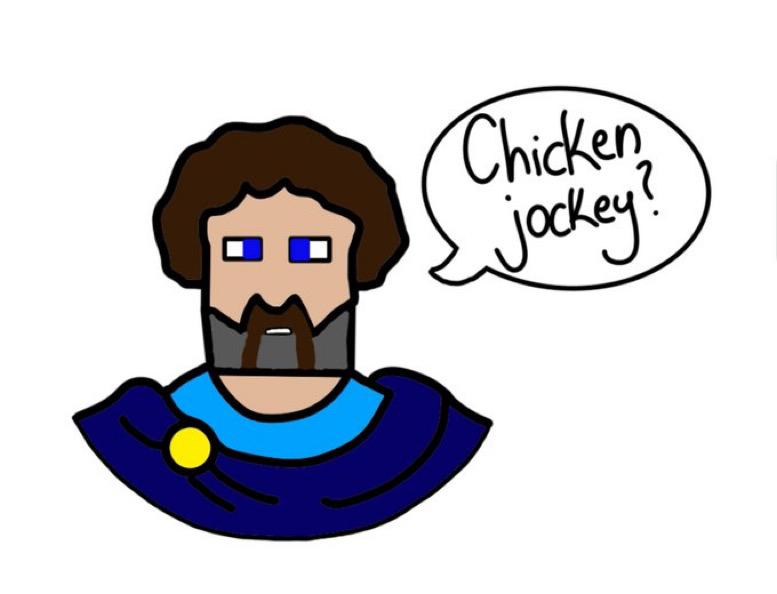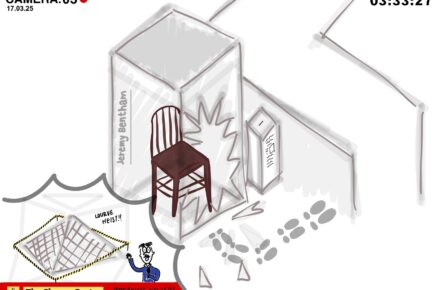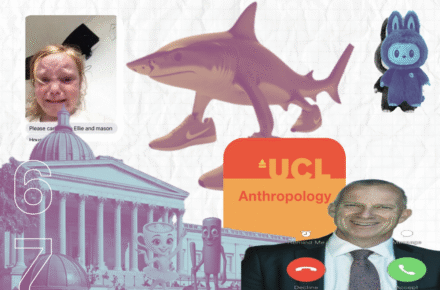

You may have recently seen criticism floating around in online spheres — and overheard in the Print Room — surrounding the new cinematic masterpiece that is A Minecraft Movie. Critics are calling the film “awful,” a “waste of time,” “an insult to the art,” yet all of these people have got this film entirely wrong. The Godfather? Awful. Citizen Kane? Just forget it. A Minecraft Movie is the greatest contribution to cinema since the invention of the camera.
Amid Jack Black’s relentless and unnecessary declarations of Minecraft inventory items, the film unveils its true genius: a labyrinth of postmodern philosophy disguised behind chicken jockeys and nether portals. This is no mere narrative; this is something you’d overhear half-explained by a sweaty PPE student in the Gordon Square Starbucks. A Minecraft Movie doesn’t just break the mould of traditional storytelling — it punches it into creative mode and flies straight into the hallowed halls of existential literature, boldly claiming its rightful place alongside Kafka, Camus, … and that one really weird dissertation someone presented in your Critical Theory seminar.
Steve, at the centre of the narrative, is quickly established as a blank slate, Kafkaesque everyman. His immediate identification with the blocky aesthetics of the Overworld represents the fragmentation of identity within a digital age. Much like the average UCL student navigating the derelict, obstructed mess that is now the Portico, the question becomes: Who even am I beneath this digital façade? The audience can find their identity reflected within the blocky chaos of the film — just as one might find their own reflection in the dark glass of the IOE, wondering if they should actually go back into the lecture or sack it off and go to bed.
Left to his own pixelated devices, Steve sheds the illusion of normalcy. His primal longing for the mines — blocky, endless, and eerily quiet — unearths a version of himself long buried beneath career ambitions and module deadlines. It is this childhood self that the audience regresses to; the same childhood self that never truly left Creative Mode.
Furthermore, the contradictions found within one’s fractured identity are eloquently explored through the lens of the Chicken Jockey. The chicken jockey, a grotesque fusion of innocence and menace, encapsulates the posthuman condition — a kind of cursed mascot for UCL’s interdisciplinary ethos. An undead infant astride a poultry steed, galloping through a world that neither asked for nor can understand him. It is not merely a mob; it is a commentary on the absurdity of hierarchy in a block-based reality — and perhaps, by extension, in the UCL timetabling system.
The film, of course, borrows from Baudrillard’s Simulacra and Simulation, which no one at UCL has read cover to cover but everyone insists on quoting in essays. The movie itself is a simulation of that simulation. And in such a simulation, how can we ever hope to find meaning? Especially when Eduroam cuts out in the middle of your Turnitin upload?
Jason Momoa’s embodiment of Garrett functions as a hypermasculine archetype meticulously constructed to uphold and reflect the entrenched structures of male hegemony within digital landscapes. Or, in simpler terms, he’s every rugby lad you’ve ever seen shouting outside Phineas on a Wednesday night — transplanted awkwardly into a pixelated world where conventional power dynamics are flattened by both game physics and emotional depth set permanently to “off.” His identity, like his dialogue, is systematically dismantled until nothing remains but a symbolic husk, lost and confused, much like a Philosophy finalist who just realised their entire dissertation is based on a meme.
In the end, A Minecraft Movie is not merely a film. It is a seismic cultural event, a philosophical provocation, and a pixelated mirror held up to the fractured soul of the modern student. Those who dismiss it as a brightly coloured kids’ film fail to grasp the profound existential anguish embedded in every misfired arrow, every wonky Jack Black line delivery, every abrupt cut between narrative threads that were never fully woven. To critique A Minecraft Movie is to critique ourselves — for it is we who built this world, cube by cube, lecture by missed lecture, and it is we who must now reckon with the monument we’ve constructed to our own absurdity.
Critics may scoff. But history — like UCL Estates — will remember. Probably in Creative Mode.








